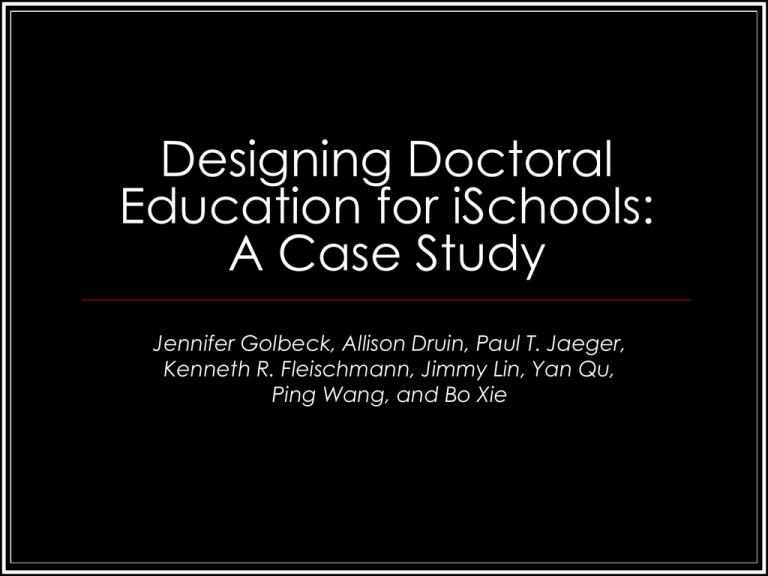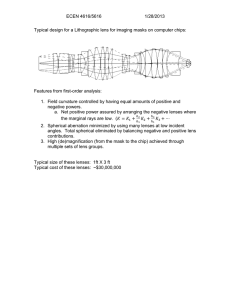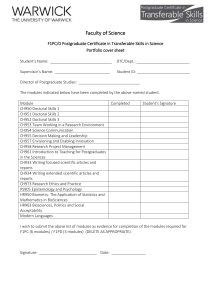Designing Doctoral Education for iSchools: A Case Study
advertisement

Designing Doctoral Education for iSchools: A Case Study Jennifer Golbeck, Allison Druin, Paul T. Jaeger, Kenneth R. Fleischmann, Jimmy Lin, Yan Qu, Ping Wang, and Bo Xie Challenges for iSchool Education Core of any one field is insufficient for iSchool doctoral education Students need to be knowledgeable about all related fields Students should recognize how their research relates to other topics, even if they are very different 2/10 Lenses People Systems Environments Information Together the lenses provide a way to understand research topics 3/10 The Modular Method Modules are 2-week mini-courses on a variety of topics Each module includes A description of the research topic Discussion questions Lenses perspectives on the topic 5-8 readings related to the topic Faculty members create modules on their areas of expertise 4/10 Sample Module Information Economics 5/10 Module Topics (semesters 1&2) Cloud Computing Information Economics Lifelong Users Multicultural Identity Organizations Computing with Social Relationships Social Visualization Systems System Design for User-Centered Information Sharing and Access Universal Access and Usability Values and Ethics 6/10 The Doctoral Seminar Five modules Broad range of topics May choose one main lens for the whole semester, or different lenses based on the modules available Discuss papers, how the lenses apply to each paper, and discuss the issues specific to the paper and as they relate to information studies more broadly 7/10 Student Participation Lead a discussion on a paper from a module Build your own module The Integrative Paper 8/10 Student Module Topics Educational Technology Alternative Approaches to Copyright Protection Culture and Learning Styles Information Privacy Online Personal Learning Environments Social Geolocation Software Licenses and Agreements Value Perspectives in Net Neutrality Video Games and Learning Virtual Communities and Communication Web Search 9/10 Conclusions Lenses of people, systems, environments, and information form a coherent language to describe and discuss the field Modules provide a broad coverage of topics representing the faculty expertise Students learn how to think about many problems from a variety of perspectives Allison Druin, Paul T. Jaeger, Jennifer Golbeck, Kenneth R. Fleischmann, Jimmy Lin, Yan Qu, Ping Wang, and Bo Xie. 2009. The Maryland Modular Method: A Case Study in iSchool Doctoral Education, Journal of Education for Library and Information Science (JELIS). to appear. 10/10

